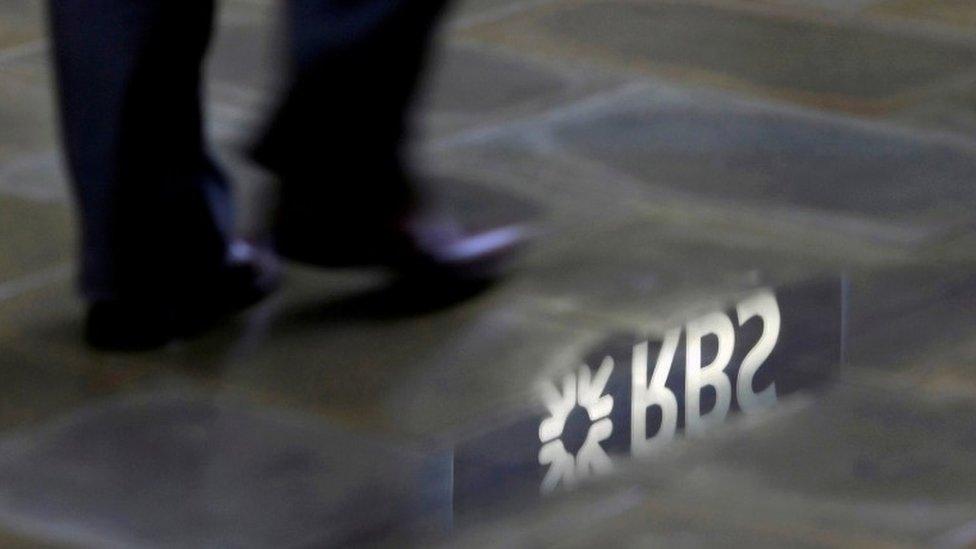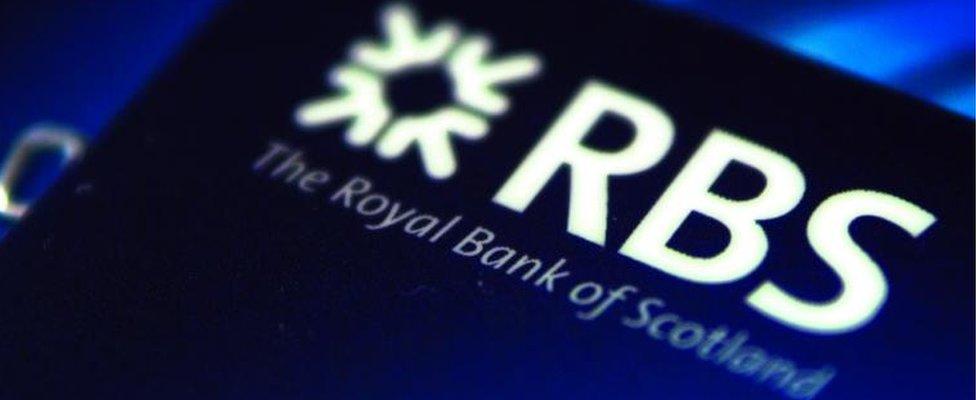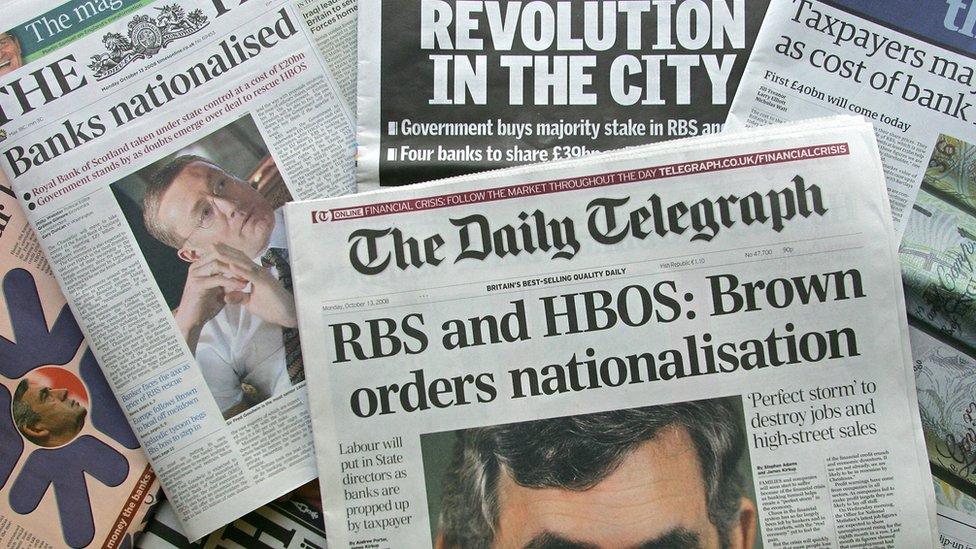Why is RBS still losing money?
- Published
- comments
When RBS lost £24bn in 2008, my daughter was half way through junior school.
She's now doing her A-levels and RBS is still losing billions.
Next year she'll apply for university - next year RBS will lose another few billion.
Watching RBS develop has not been a very rewarding experience - for anyone.
Taxpayers have seen the £45bn they sank into the bank more than offset by £58bn of losses and counting.
Multiple scandals
The RBS headcount has shrunk by 100,000 in that time, with thousands more yet to lose jobs as the bank shrinks further and branches close.
If there has been a scandal going, RBS has been involved.
Fines for PPI, Libor rigging, foreign exchange fixing, squeezing small businesses for profit, and selling risky mortgages have laid waste to any earnings the core UK bank has been making.
It's not over.
In terms of fines for past misconduct the worst is yet to come in the form of a whopping fine from US authorities for RBS's role in the subprime mortgage crisis.
That should be settled this year but if RBS gets much change out of £10bn it will be considered a pretty good result.
And yet... beneath all this wreckage is a UK-focused bank that lent £24bn into the UK economy and has been churning out a profit of about £1bn every three months.
Sadly, that bank will have to wait till 2018 to see the light of day.

No silver lining - yet
So why has it taken RBS so much longer than others to heal itself?
Lloyds and Barclays are both making a profit, the US banks at the epicentre of the 2008 financial earthquake are flying high while RBS shares need to double in value for the UK taxpayer to break even.
A former senior Treasury official told the BBC: "You have to remember that wherever something bad or unwise was happening, RBS was at the forefront.
"It took the biggest risks, was involved in every scandal, was the most aggressive, made the most absurd acquisition (£50bn for ABN Amro in the teeth of the crisis) and had the biggest balance sheet in the world."
That put it in the worst possible position to recover from the crisis.
Which begs another question. Why wasn't the fix imposed in 2009 more radical?
Some £45bn was pumped in for an 81% stake. In hindsight, that was nowhere near enough and the coalition government of 2010 should have done more to fix it after it had survived the initial crisis.
False dawn
Today's chief executive Ross McEwan agrees.
He told the BBC: "We should have recapitalised the banks much quicker like in the United States and then allow the conduct issues to come back when the banks were making money.
"In the UK, the banks didn't have sufficient capital and got hit by the conduct issues at the same time, and this bank (RBS) had that in spades."
But remember, the economic and political picture looked very different in 2010.
Austerity was the name of the game and George Osborne could ill afford to be seen to be throwing more money at RBS, possibly paying to fully nationalise it, when he was making swingeing cuts elsewhere.
Not only that but there were real hopes that RBS would make a profit in 2011 and the share price was on the way up.
It looked like the government could get away without putting in any extra money. So it didn't.
That turned out to be a very false dawn as the eurozone crisis hit and the full magnitude of past misconduct began to emerge.

There was also a battle over what kind of bank RBS should try to be.
The man heading the bank at the time, Stephen Hester, wanted to hang on to the investment banking bits in the hope that when the world returned to normal, the high profits usually associated with trading - helping companies raise money and advising them - would help the bank return to health.
The Treasury disagreed and since it owned 80% of the bank, Stephen Hester was shown the door in 2013.
Former Treasury officials acknowledge that at least two of his five years in charge was wasted in strategic wrangling with the government.
We still care about this humbled giant because we still own so much of it and the prospect of the taxpayer getting its money back is still a very distant one.
Compare that to Lloyds which has paid back nearly all the £20bn put in.
As discussed, RBS was a much sicker bank than Lloyds - and failing to recognise that earlier led to another mistake.
The government overpaid for its stake.
Under enormous pressure, working all night, with the prospect of cash machines not working on a Monday morning, the government agreed to pay roughly 500p a share in today's money.

The financial crisis led to drastic action by the government
That was what each share was worth on paper at the time - or the so called "book value".
A couple of weeks later, the US government paid half that for the shares it bought in US banks.
That enabled the US government to sell off its stakes much earlier.
Now, the prospect of selling at a big loss is an unattractive one for the government and the prospect of a bank predominantly owned by the government is an unattractive one for investors.
They know that one day there will be a big seller of the shares. It's a stand-off that keeps the price stubbornly low.
So what now?
There is a core bank churning out profits, a billion pounds a quarter and today's announcement included the first confident prediction of bottom line profit we have seen from Ross McEwan
Just not till 2018.
There is still pain ahead but there is also light.
Who knows, by the time my daughter leaves home, RBS may be back in the black.